
- Posted by: Bareerah Shoukat
- E-Learning Technology Techposts
- October 11, 2023
The 10 Best Online Learning Platforms – A Comprehensive Comparison
Since the tech revolution in the early 90’s – online learning has been a method that has slowly gained popularity. This trend further accelerated during the COVID-19 pandemic when people sought flexible and safe ways to continue their education and training.
In fact, the revenue generated by online learning platforms is projected to reach a staggering US$58.17 million at the end of 2023.
With a plethora of online learning options available today, it can be overwhelming to choose the right platform for learning. In this blog, we’ll see the top online learning platforms with features and ultimately see which is the best fit for you.
What Is an Online Learning Platform?
Before diving into the comparison of the best online learning platforms, let’s start by understanding what an online learning platform is. An online learning platform is a digital environment where individuals can access educational content, interact with instructors or peers, and track their progress.
These platforms have revolutionized the way we acquire knowledge and skills by offering flexible, convenient, and often cost-effective alternatives to traditional education. They are designed to be user-friendly and accessible from any device with an internet connection.
Types of Online Learning Platforms
Online learning platforms come in several types, each catering to different learning needs and preferences. Here are some common types:
• MOOCs (Massive Open Online Courses)
MOOCs are open to anyone interested and offer a wide array of courses, often from prestigious universities and institutions. They are typically self-paced, making them a flexible option for learners.
• E-Learning Platforms
E-learning platforms are commonly used in the corporate world for employee training. They offer a structured learning environment and often include tracking and assessment features.
• LMS (Learning Management System)
LMS platforms are used in educational institutions and organizations to manage and deliver courses. They provide tools for instructors to create, organize, and assess learning materials.

Factors to Consider When Choosing an Online Learning Platform
1. Course Variety:
Look for a platform that offers a diverse range of courses in your area of interest or the subject you want to study. A broad selection ensures you can find courses that align with your learning goals.
2. Learning Format:
Consider your preferred learning style. Some platforms offer self-paced learning, while others follow a structured schedule with specific start and end dates. Choose the format that suits your pace and commitments.
3. Course Quality and Instructors:
Research the qualifications and expertise of the instructors. Read reviews and testimonials to gauge the quality of course content and teaching.
4. Cost and Pricing Model:
Evaluate the platform’s pricing structure. Some offer one-time purchases for individual courses, while others require a subscription fee. Calculate the overall cost of your desired courses to ensure it fits your budget.
5. Interactivity and Engagement:
Assess the level of interactivity within courses. Look for features like quizzes, assignments, discussion forums, and peer interaction, as these can enhance your learning journey.
Top 10 Online Learning Platforms
To assist you in making an informed decision, we’ve curated a list of the top 10 online learning platforms. In this extensive comparison, we will delve into each platform’s features. Let’s get started.
1. 10Pearls University

10Pearls University is one-of-a-kind learning platform. It is a self-service e-learning platform; along with community development events to connect and engage the tech community worldwide.
10Pearls University offers a wide range of self-paced courses in technology, business, and management, covering topics such as Quality Assurance, Programming, Data Analysis, etc. These courses are taught by experienced industry professionals and are designed to be hands-on and practical.
Best of all? All courses are free of cost along with the certificate of completion. Additionally, 10Pearls University prioritizes flexibility and convenience with a mobile app, enabling you to learn on the go and access courses at your convenience, wherever you are.
Features
- Self-paced courses to take from anywhere anytime
- Free courses for everyone
- Interactive quizzes and assignments
- Unlock free certificate
Courses created by industry experts - Community engagements for networking
- User-friendly mobile app
2. Udemy
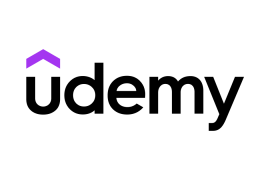
If you decided to explore the e-learning world, we are pretty sure you’ve come across Udemy . It has by far the most variety of courses compared to other platforms. Udemy is easy to use and provides paid courses and certifications.
However, it’s important to note that while Udemy provides these certificates, they typically come at an additional cost. This means that to obtain a certification, you’ll need to pay a fee on top of the course price. It’s a factor worth considering when planning your learning journey on Udemy. Pretty much anyone around the globe can become an instructor on this platform which opens the door to quality control issues.
Features
- Vast library of courses covering numerous topics and skill levels
- Affordable pricing with frequent sales and discounts
- Interactive quizzes and assignments
- User-generated content, allowing anyone to become an instructor
- Wide variety of courses, including both technical and creative subjects
- Self-paced learning for flexibility
3. Coursera
Coursera primarily serves as an online educational hub catering to academic institutions. It provides an extensive selection of accredited online degrees, specializations, and certificates, often in partnership with globally renowned educational institutions.
Like Udemy, Coursera is paid. It has a limited range of topics like business and science. The courses here also have start and end dates rather than being self-paced.
Features
- Extensive selection of accredited online degrees
- Partnerships with globally renowned educational institutions.
- Structured courses with start and end dates
- Available in multiple languages
- User-friendly website for a seamless learning experience
4. edX
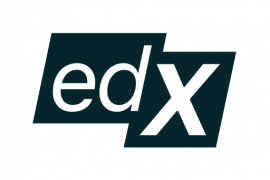
One of the types of online course platforms we have seen is MOOCs. edX is just that. Similar to a traditional university, edX offers an extensive array of course topics spanning architecture, art and the humanities, sciences, etc. One of edX’s standout features is its commitment to open-source education.
However, it’s important to consider potential costs associated with verified certificates, the level of interactivity, and the learning curve for newcomers when deciding if edX is the right choice for their learning needs.
Features
- Offers accredited and widely recognized completion certificates
- Although courses are paid, edX extends financial aid options.
- Offers flexible self-paced learning options
- Collaboration between Harvard and MIT
5. LearnWorlds
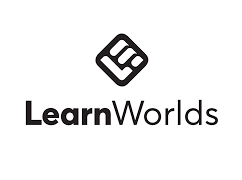
LearnWorlds is an e-learning platform that focuses on providing an interactive and engaging learning experience. It caters to course creators and educators, offering tools to design and deliver online courses.
While LearnWorlds offers impressive features for creating an interactive and branded learning experience, it’s essential to weigh these benefits against its potential drawbacks, such as cost and learning curve. Ultimately, your decision should align with your specific educational goals and resources.
Features
- Interactive learning
- White-label courses to create a branded learning environment
- No cap on courses
- Robust marketing and sales features for course creators
6. Skillshare

Skillshare is a unique online learning platform that specializes in creative courses. It offers a wide array of classes in subjects such as design, photography, illustration, and more. Skillshare operates on a subscription-based model, providing unlimited access to its course library for a monthly fee.
Its vast course variety and community engagement features make it a valuable resource for creative learners. However, its niche focus, limited course depth, and subscription model may not be suitable for everyone. Moreover, anyone and everyone can be an instructor which dilutes the credibility of some of the content taught on Skillshare.
Features
- Creative-focused platform with courses in design, photography, and art
- Strong sense of community and collaboration among learners and instructors
- Affordable subscription model for access to all courses
- Opportunities for artists and creatives to showcase their skills
- User-friendly interface for easy navigation
7. Podia

Podia is an all-in-one online learning platform designed to empower course creators and entrepreneurs. With a focus on simplicity and user-friendliness, Podia offers a comprehensive suite of tools for creating, hosting, and marketing online courses, digital downloads, memberships, and webinars.
This platform stands out for its commitment to providing a hassle-free experience, allowing course creators to concentrate on what they do best – teaching.
Features
- Course creation, hosting, and marketing in one platform
- White-labeling to create a branded learning environment
- Integration with various payment gateways for selling courses
- Drip content to schedule course releases
- Ability to sell memberships and digital products alongside courses
8. Codecademy
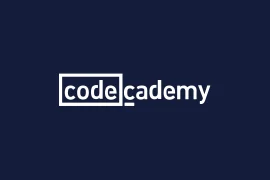
Codecademy is a popular online learning platform designed to teach coding and programming skills in an interactive and beginner-friendly manner. With a mission to make coding accessible to anyone, Codecademy offers a wide range of coding courses.
This interactive learning experience, combined with a supportive community and a free basic plan, makes
Codecademy a good choice for aspiring programmers and those looking to enhance their technical skills. However, one drawback to note is that the free plan has limitations, and to access advanced features and content, users need to subscribe to the paid Pro plan.
Features
- The platform covers various programming languages, web development, data science, and more
- Learners can apply their skills by working on projects and completing coding challenges
- Integration with various payment gateways for selling courses
- Drip content to schedule course releases
- Ability to sell memberships and digital products alongside courses
9. Khan Academy
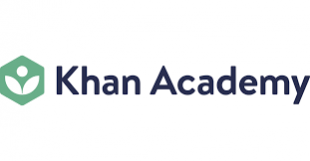
Khan Academy is a widely recognized and trusted online learning platform that provides free educational resources to learners of all ages. Founded with a mission to provide a free, world-class education for anyone, anywhere, Khan Academy offers a vast library of video lessons, practice exercises, and educational materials primarily focusing on mathematics and science.
However, it’s worth noting that while Khan Academy excels in mathematics and science education, its course offerings in other subjects may be more limited. This specialization could be seen as a limitation for learners seeking a broader range of topics. Nonetheless, for those seeking to bolster their skills in math and science, Khan Academy remains an excellent choice.
Features
- Khan Academy offers a vast library of instructional videos covering a wide range of subjects, with a primary focus on mathematics and science
- The platform adapts to individual progress, providing recommendations for areas that may need improvement
- Khan Academy is entirely free of charge, making quality education accessible to anyone with an internet connection
- The platform is accessible on desktops, tablets, and smartphones, ensuring learning flexibility
10. LinkedIn Learning

LinkedIn Learning is a dynamic online learning platform that seamlessly integrates with the LinkedIn professional network. Designed to enhance career development and foster continuous learning, it offers a wide array of courses and resources to empower individuals in their professional journeys.
It offers a vast range of courses geared towards enhancing career skills and knowledge. Users can seamlessly showcase their completed courses on their LinkedIn profiles. While the integration with LinkedIn can be an advantage, it can also be a drawback for individuals who wish to maintain a degree of privacy or separation between their professional development and their LinkedIn presence.
Features
- High-quality content and instructors
- Seamless integration with LinkedIn
- Subscription-based model
Which One to Choose?
In the ever-expanding world of online learning platforms, the quest for the perfect fit can be daunting. Each platform offers a unique set of features, making it crucial to choose wisely based on your individual needs and goals.
As we navigate this digital terrain, there’s one more noteworthy contender worth considering—10Pearls University. This platform stands out for its distinctive approach in combining self-service e-learning with community development events, effectively connecting and engaging the global tech community.
With a diverse range of tech-related courses and the added value of community networking, it offers a compelling proposition for tech enthusiasts and professionals alike. You can even learn on the go and earn a certificate from anywhere at any time.

FAQ's
- What is the importance of online learning platforms?
Answer: Online learning platforms offer flexible and accessible education options, enhancing skills and knowledge from the comfort of your own space. - Which online course platform is best for beginners?
Answer: Skillshare is beginner-friendly, with a focus on creative courses and a user-friendly interface. - Is 10Pearls University completely free?
Answer: Yes, all courses at 10Pearls University are free of cost, including the certificate of completion.
